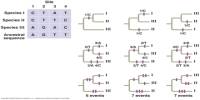Aging is a complex biological process characterized by the accumulation of hallmark features that shape an individual’s aging trajectory and subsequent disease risks. Individual differences in the aging process exist between men and women. Women live longer than men which is consistent with lower biological ages as measured by molecular biomarkers, but there is a paradox. Women are frailer and have poorer health at the end of life, whereas men continue to perform better in physical function tests.
The effects of medications on men and women can be very different. As researchers have now demonstrated, this also applies to rapamycin, the most promising anti-aging drug currently on the market. They claim that the drug only extends the lives of female fruit flies and not males. Furthermore, in female flies, rapamycin only slowed the development of age-related pathological changes in the gut. The researchers conclude that biological sex is an important factor in anti-aging drug efficacy.
Women have a significantly longer life expectancy than men. Women, on the other hand, are more likely to suffer from age-related diseases and adverse drug reactions. “Our long-term goal is for men to live as long as women and for women to be as healthy as men in old age. But first, we must understand where the differences originate “explains Yu-Xuan Lu, one of the study’s lead authors.
Sex can have a significant impact on the effectiveness of anti-aging medications. Understanding the sex-specific processes that determine therapeutic response will aid in the development of personalised treatments.
Linda Partridge
Rapamycin extends lifespan only in female flies
The researchers gave male and female fruit flies the anti-aging drug rapamycin to see how it affected the different sexes. Rapamycin is a cell growth inhibitor and immune regulator that is commonly used in cancer treatment and following organ transplants. Rapamycin was found to increase longevity and slow age-related intestinal pathologies in female flies but not in males.
The researchers wanted to know if there are differences in biological aging between men and women, and if so, if so, if the differences can be explained by lifestyle factors. These distinctions were examined in both young and old adults.

Healthier life due to more autophagy
Rapamycin increased autophagy, the cell’s waste disposal process, in female intestinal cells, according to the researchers. Male intestinal cells, on the other hand, appear to have a high basal autophagy activity that cannot be increased further by rapamycin. Rapamycin had the same effect on mice, according to the researchers. Rapamycin treatment increased autophagy activity in female mice.
“Previous studies found that females had greater responses to rapamycin on lifespan extension than males in mice; we now use flies to uncover the underlying mechanism of these differences,” says Yu-Xuan Lu.
Sex-specific, personalized treatments
“Sex can have a significant impact on the effectiveness of anti-aging medications. Understanding the sex-specific processes that determine therapeutic response will aid in the development of personalized treatments” explains Linda Partridge, the study’s senior author.
















